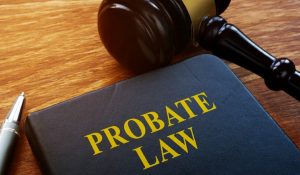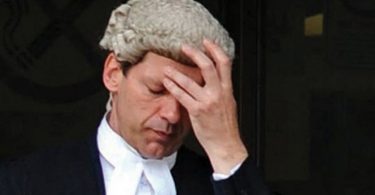Table of Contents
- 1 What Is the Role of The Executor in Probate?
- 1.1 Open The Estate on Time
- 1.2 Advise Heirs and Beneficiaries
- 1.3 Take Control and Protect the Estate
- 1.4 Check Out Decedent’s Mail
- 1.5 Seek Help from the Right Professionals
- 1.6 Distinguish Probate and Non-Probate Assets
- 1.7 Properly Value the Estate Assets
- 1.8 Prepare An Accurate Inventory of Assets
- 1.9 Keep Accurate Accounting Records
- 1.10 Remember To Close Out the Estate
It’s wise to take caution when fulfilling your legal obligations and duties as an estate executor. Most of the reported cases of executors having to lose personal assets for damages they caused in estate oversight result from overlooking critical standard operating procedures.
If a court of law ascertains that you mishandled or failed to protect the estate, you could be subject to sanctions and penalties. And since man is to error, you want to know the blackspots as you traverse the overwhelming and time-consuming responsibility.
Key Takeaways
- Handling the probate process and overseeing the estate distribution is no easy feat, especially when relatives and family members are still grappling with the loss of a loved one.
- Some of the primary responsibilities of an estate executor include filing a petition and the Will, notifying beneficiaries, paying claims, and closing the decedent’s affairs.
- Tips to help you avoid grievous mistakes as an estate executor include opening the estate on time and protecting the estate.
What Is the Role of The Executor in Probate?

Executors have a fiduciary duty
The executor, also called personal representative (PR) or estate administrator, files a petition in a probate court to commence the probate process and facilitate estate distribution to heirs and beneficiaries. They act as the estate’s custodian and the probate court’s agent in determinations.
After the testator’s death, the probate process commences to establish the validity of a Will and ensure that it is followed to the letter. Essentially, the court ensures that creditors’ issues are addressed and the estate is distributed according to the Will and the law.
Unfortunately, handling the probate process and overseeing the estate distribution is no easy feat. The situation is further complicated when relatives and family members are still grappling with the loss of a loved one.
Some of the main responsibilities of an estate executor include:
- Filing a petition and the Will.
- Notifying the Register of Wills
- Notifying beneficiaries
- Filing Inventories
- Paying claims
- Paying all necessary taxes
- Filing tax returns
- Closing the affairs of the decedent
Most of these responsibilities are guided by the Will and the laws of the land. Therefore, you must understand the entire probate process and the relevant laws used in the jurisdiction. The most crucial point is that you can’t risk going alone.
Professional probate researchers at Record Click work with lawyers, administrators, executors, trustees, and bank and trust officers to complete heir search, estate settlement, probate research, lineages, and heir search services.
The professionals have been assisting families with the complex and time-consuming processes for years to take the weight off their shoulders.
Below are tips to help you avoid grievous mistakes as an estate executor.
-
Open The Estate on Time

The earlier the better
Don’t wait too long to open the estate, as you could incur losses and cause unnecessary delays to the heirs. As an executor, you’re expected to make the first legal move within a reasonable time after the testator’s death.
Letting the estate remain closed for a substantial time is tempting, but woe unto you when it catches up with you. The longer you wait, the more the taxes and bills continue to accrue, and the more the heirs become chagrined.
As an executor, it would help if you smoothly facilitated the transition, ensuring that assets are distributed accordingly, and the case closed. So, analyze your strengths and weaknesses and decide whether you’re up to the task.
If you think you’re not capable of handling the case, it would be better to decline politely to be an executor than to become an additional layer of stress to a grieving family.
-
Advise Heirs and Beneficiaries

Assets and Estate distribution
Estate executors have a fiduciary duty under the law. Therefore, you must keep the heirs and beneficiaries in check during the probate and estate settlement process. Usually, the Register of Wills sends notifications to heirs about the opening of an estate. For this reason, executors don’t bother communicating with all the heirs, assuming it’s the court’s duty.
When the court is the first to notify heirs, they are likely to spawn mistrust and suspicion. Therefore, it’s always best to communicate with interested parties to keep them updated. Ignoring them will make things worse. Remember, the heirs and beneficiaries have the right to file a petition to initiate your removal as an executor.
-
Take Control and Protect the Estate

Estate settlement should be done legally and ethically
Proactivity is crucial when you are the estate executor, especially when real estate is at stake. Some things you should be ready to undertake as the PR include maintaining property insurance and securing real estate from trespassers and break-ins. Another critical task is to ensure the payment of taxes and mortgage proceeds to avoid losses.
Some of these tasks may be challenging for an estate executor, especially if you don’t live on the property. However, a good realtor can help repair and maintain the property pending sale or court determination.
Another crucial aspect is the estate cash and financial accounts related to the estate. As an executor, you must know the last time the cash or accounts were accessed and by whom. Besides, you need to close all credit cards until you have a strategy through the probate process.
-
Check Out Decedent’s Mail
Checking out the mail is a commonly forgotten standard operating procedure that could save you a boatload. Once you become the estate executor, you should see all mail from the post office to update you on important notices.
Besides finding claims from lenders or creditors, emails can help locate information that no one could be aware of. Bank statements, credit card statements, and 1099s can help locate more assets.
-
Seek Help from the Right Professionals

Be professional
Having a relative or a close friend who practices law doesn’t mean they qualify to represent you in the probate process. Instead, hire professionals who will be of value in conducting your fiduciary duty.
You should hire a professional heir researcher and a probate attorney to help conduct the probate research and file all the necessary documents. Other crucial professionals may include financial planners, tax advisors, and realtors. Feel free to seek guidance from the probate attorney on choosing the professional, but be sure to rely more on their professionalism than your kinship.
-
Distinguish Probate and Non-Probate Assets

Gifting bypasses the tedious probate process
Probate assets are those with the decedent as the sole owner or as a tenant in common. The easiest way to determine a property’s legal ownership is through the deed of transfer to the decedent. The mode of titling is the primary determinant of whether a real property will pass through the estate.
According to the multiple-part jointly owned asset with rights of survivorship, it generally ends up with the surviving party. However, assets with beneficiaries named, such as retirement benefits, life insurance policies, and certificate of deposit (CD), should be paid upon the testator’s death.
Generally, studying the documentation helps determine the property or account ownership and whether it will be subject to the probate process.
-
Properly Value the Estate Assets

Ensure accurate asset valuation
It would help if you oversaw proper asset valuation as the estate executor. Considering the processes’ complexity, you may need the professional assistance of a certified and court-accepted appraiser to oversee the endeavor.
While an appraiser is necessary for vehicles and items like household “stuff” and furniture, the case might differ for real property. It would be best if you decided whether to work with an appraisal, the state tax assessment, or a comparative market analysis. Of course, the decision should consider the potential tax liabilities and overall costs.
-
Prepare An Accurate Inventory of Assets

Executors have a fiduciary duty
The assets the decedent owns solely, including personal property and accounts, should be subject to the probate and estate administration process. Therefore, estate executors must be accurate when filing the inventory and ensure they include everything.
The inventory informs the court of the extent and value of the estate. Typically, it takes time to complete the inventory as the executor must thoroughly investigate all the assets before submitting it.
-
Keep Accurate Accounting Records

Enhance record keeping
As an estate administrator, PR, or executor, keeping accurate records reflecting all the transactions is imperative. The first thing to file is the administration account, which must regularly report to the probate court about expenses and any profits or losses of the estate.
Lack of accurate records makes it difficult to itemize the expenses and account for the investments, gains, losses, etc. Although estate attorneys handle a big part of updating the records, you’re responsible for providing ledgers and records to help them make final submissions.
It would help to consult an accountant to assist you with the preparations. Once the estate is ready to close, you should file a final account with the court for review and approval. The account will only be approved if the numbers are accurate to the penny.
If you don’t get your records right, the heirs may file objections to the final account, further delaying the probate process.
-
Remember To Close Out the Estate

Heir search, estate settlement, and probate must follow the law
After the bank accounts are liquidated, claims paid, and necessary tax returns filed, you must formally close out the estate. A regular estate has over $100,000 in assets and requires a final administration account. This account reflects all the transactions related to the estate, including the gains, losses, expenses, and final distributions to the beneficiaries and heirs.
Note the probate court must review and approve the account before you commence distributions. Always mail the checks to the beneficiaries to ensure they receive their share. Alternatively, you can have them sign a receipt for any asset or cash they receive. In the case of real estate, the executor must prepare a deed of distribution and record it with the local land records office to prove final conveyance to the beneficiary.
Ignoring these final steps could lead to severe problems when beneficiaries want to sell the property, leading to additional costs and court processes. The executor could be personally responsible for these expenses and damages since all other assets are already distributed.







